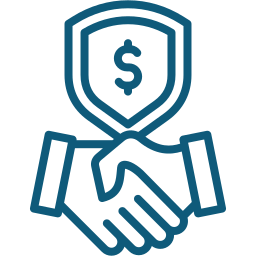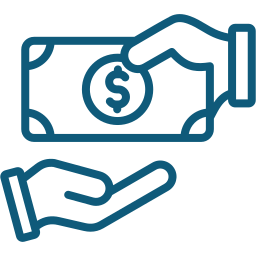We are processing your application, please wait for a moment.
![]() We Use 2048-bit SSL Technology to encrypt your data
We Use 2048-bit SSL Technology to encrypt your data








Quick Online Process
Only takes minutes

Fast Online Decision
Receive a decision in minutes

Same-Day Deposit
Up to $5,000 in your account in 24 hours*
Home | FAQs | Terms of Use | Rates & Fees | Disclaimer | Privacy Policy | Lending Policy | Contact
Maximize Your Budget with a Payday Advance
Payday advances are short-term loans designed to provide immediate financial relief to individuals facing unexpected expenses or cash flow shortages. Typically, these loans are intended to cover urgent needs until the borrower receives their next paycheck. The appeal of payday advances lies in their accessibility; they often require minimal documentation and can be obtained quickly, sometimes within a matter of hours.
Borrowers can apply online or in person, and the approval process is usually straightforward, making it an attractive option for those who may not qualify for traditional bank loans due to poor credit history or lack of collateral. However, while payday advances can offer a quick solution to financial woes, they come with significant risks and costs. The interest rates on these loans can be exorbitantly high, often exceeding 400% APR, which can lead to a cycle of debt if not managed properly.
Borrowers may find themselves taking out additional loans to pay off existing ones, creating a financial trap that is difficult to escape. Understanding the mechanics of payday advances, including their terms and conditions, is crucial for anyone considering this option. It is essential to weigh the benefits against the potential long-term consequences before proceeding with a payday advance.
How to Qualify for a Payday Advance
Qualifying for a payday advance typically involves meeting a few basic criteria that lenders set forth. Most lenders require applicants to be at least 18 years old and possess a steady source of income, which can be derived from employment, government benefits, or other reliable means. Additionally, having an active checking account is often a prerequisite, as lenders need a way to deposit the funds and withdraw repayment when it is due.
While some lenders may conduct credit checks, many payday advance providers do not place significant emphasis on credit scores, making these loans accessible to individuals with less-than-perfect credit histories. It is also important for potential borrowers to be aware of their local laws regarding payday advances, as regulations can vary significantly from one state or country to another. Some jurisdictions impose strict limits on the amount that can be borrowed or the fees that can be charged, while others may have no regulations at all.
Understanding these legal frameworks can help borrowers make informed decisions and avoid predatory lending practices. Before applying for a payday advance, individuals should gather necessary documentation such as proof of income and identification to streamline the application process and increase their chances of approval.
Tips for Maximizing Your Payday Advance
To make the most out of a payday advance, borrowers should approach the process with a clear strategy and understanding of their financial situation. One effective tip is to borrow only what is absolutely necessary. While it may be tempting to take out a larger sum to cover additional expenses or future needs, this can lead to higher repayment amounts and increased interest costs.
By calculating the exact amount needed to address immediate financial obligations, borrowers can minimize their debt burden and reduce the risk of falling into a cycle of borrowing. Another crucial tip is to carefully read and understand the terms of the payday advance agreement before signing anything. This includes being aware of the repayment schedule, interest rates, and any potential fees associated with late payments or rollovers.
By being fully informed about the loan’s conditions, borrowers can better plan their finances and ensure they have the means to repay the advance on time. Additionally, setting reminders for repayment dates can help avoid late fees and maintain a positive relationship with the lender.
Paying Back Your Payday Advance
Repaying a payday advance is a critical aspect of managing this type of loan effectively. Most payday advances are due on the borrower’s next payday, which means that individuals must budget accordingly to ensure they have sufficient funds available when repayment is due. It is advisable for borrowers to create a detailed budget that accounts for both their regular expenses and the repayment amount.
This proactive approach can help prevent any surprises when payday arrives and ensure that the borrower does not incur additional fees or penalties. In some cases, borrowers may find themselves unable to repay the loan on time due to unforeseen circumstances. If this happens, it is essential to communicate with the lender as soon as possible.
Many lenders are willing to work with borrowers who are facing genuine financial difficulties and may offer options such as extending the loan term or setting up a payment plan. However, it is crucial to understand that these options may come with additional fees or increased interest rates, so borrowers should carefully consider their choices before proceeding.
Avoiding Pitfalls with Payday Advances
While payday advances can provide quick financial relief, they also come with several pitfalls that borrowers should be aware of to avoid falling into deeper debt. One major risk is the tendency for borrowers to rely on payday advances as a long-term solution rather than addressing underlying financial issues. This reliance can lead to repeated borrowing and an escalating cycle of debt that becomes increasingly difficult to manage.
To avoid this trap, individuals should seek alternative solutions for their financial challenges and consider creating a more sustainable budget that prioritizes savings and emergency funds. Another common pitfall is failing to read the fine print associated with payday advance agreements. Many borrowers overlook critical details regarding interest rates, fees, and repayment terms, which can lead to unexpected costs down the line.
To mitigate this risk, it is essential for borrowers to take their time reviewing all documentation before signing any agreements. Seeking advice from financial professionals or consumer advocacy groups can also provide valuable insights into navigating the complexities of payday advances and help individuals make informed decisions.
Alternatives to Payday Advances
For those seeking financial assistance without resorting to payday advances, several alternatives exist that may offer more favorable terms and lower costs. One option is personal loans from credit unions or community banks, which often provide lower interest rates and more flexible repayment terms compared to payday lenders. These institutions typically require a credit check but may be more willing to work with individuals who have less-than-perfect credit histories.
Additionally, personal loans can provide larger sums of money that can be repaid over an extended period, reducing the financial strain on borrowers. Another alternative is borrowing from friends or family members who may be willing to lend money without charging interest or imposing strict repayment terms. While this option requires open communication and trust between parties, it can provide a more manageable solution for those in need of immediate funds.
Furthermore, individuals may consider exploring local assistance programs or non-profit organizations that offer financial aid for specific needs such as medical expenses or housing costs. These resources can provide support without the burdensome costs associated with payday advances.
Making the Most of Your Budget with a Payday Advance
When utilized responsibly, a payday advance can serve as a valuable tool in managing one’s budget effectively during times of financial strain. To maximize its benefits, individuals should integrate the advance into their overall financial planning rather than viewing it as an isolated solution. This involves assessing current income and expenses comprehensively and determining how the advance fits into existing financial obligations.
By doing so, borrowers can create a more balanced budget that accommodates both immediate needs and long-term financial goals. Additionally, using a payday advance strategically can help individuals avoid late fees on bills or other financial penalties that could arise from cash flow shortages. For instance, if an unexpected expense threatens to disrupt timely payments on essential services like utilities or rent, securing a payday advance can provide the necessary funds to maintain those obligations without incurring additional costs.
Ultimately, by approaching payday advances with careful planning and consideration, individuals can leverage them as part of a broader strategy for achieving financial stability while minimizing risks associated with high-interest borrowing.
